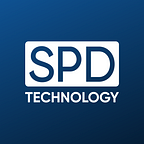Hotel Property Management Systems: things to be aware of while developing one for your business
The implementation of best practices, pitfalls, and noteworthy technicalities to help you keep tabs on the development of your Hotel Property Management system
The types of Property Management software and its benefits to property owners and asset managers
Unlike some of the other types of business applications that focus only on a sole or just a few areas of a company’s business operation, modern Property Management systems, including hotel property management systems, mean the world to their owners. They allow them to do the otherwise often impossible — efficiently manage each and every aspect of their real estate portfolios and a plethora of related interactions with their customers. This is enabled by a host of clear-cut advantages Property Management systems have as compared with the outdated traditional ways of managing properties, including:
- The ability for landlords and other property owners to manage multiple properties centrally and concurrently.
- The possibility to eliminate the bulk of the existing paperwork.
- The possibility to categorize the landlord-tenant interactions and greatly facilitate these interactions by implementing standardized responses and other standardized communications.
- The possibility to ensure an efficient and significantly more secure data storage, and some other advantages.
While being used for pretty much the same key Property Management activities like properties’ advertising, rent collection, and provision of maintenance, Property Management systems can vary quite a bit in the functionality that they provide depending on their specific purpose and target audience. Therefore, these systems include:
- Real Estate Management systems (residential)
- Hotel Property Management systems
- Commercial/Industrial Property Management systems
Residential property management systems allow you to manage all property-related information and operations, including property maintenance and billing. They process tenants’ applications, maintenance requests, and online rent payments. Such software is also used to aggregate legal information for the signature of agreements with various types of property owners, perform credit checks, and advertise properties.
With Commercial Property Management systems, you can also track occupant leases, do billing, arrange for various inspections, do lease-related accounting, perform financial forecasting, impose recurrent charges, calculate Common Area Management (CAM) changes, and perform CAM-related reconciliation.
Property management systems hotels use tend to have probably the broadest and most intricate functionality of all. They typically provide advanced online bookings, multi-channel management, reservation management, housekeeping management, and other advanced functionality.
Read the full article here: https://spd.group/tech-for-businesses/hotel-property-management-systems/
